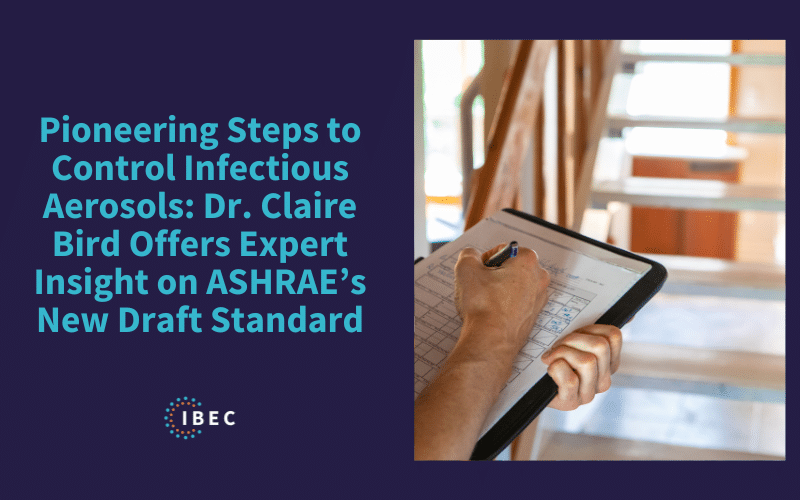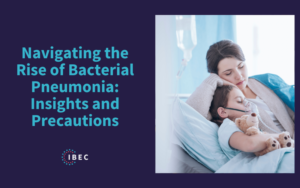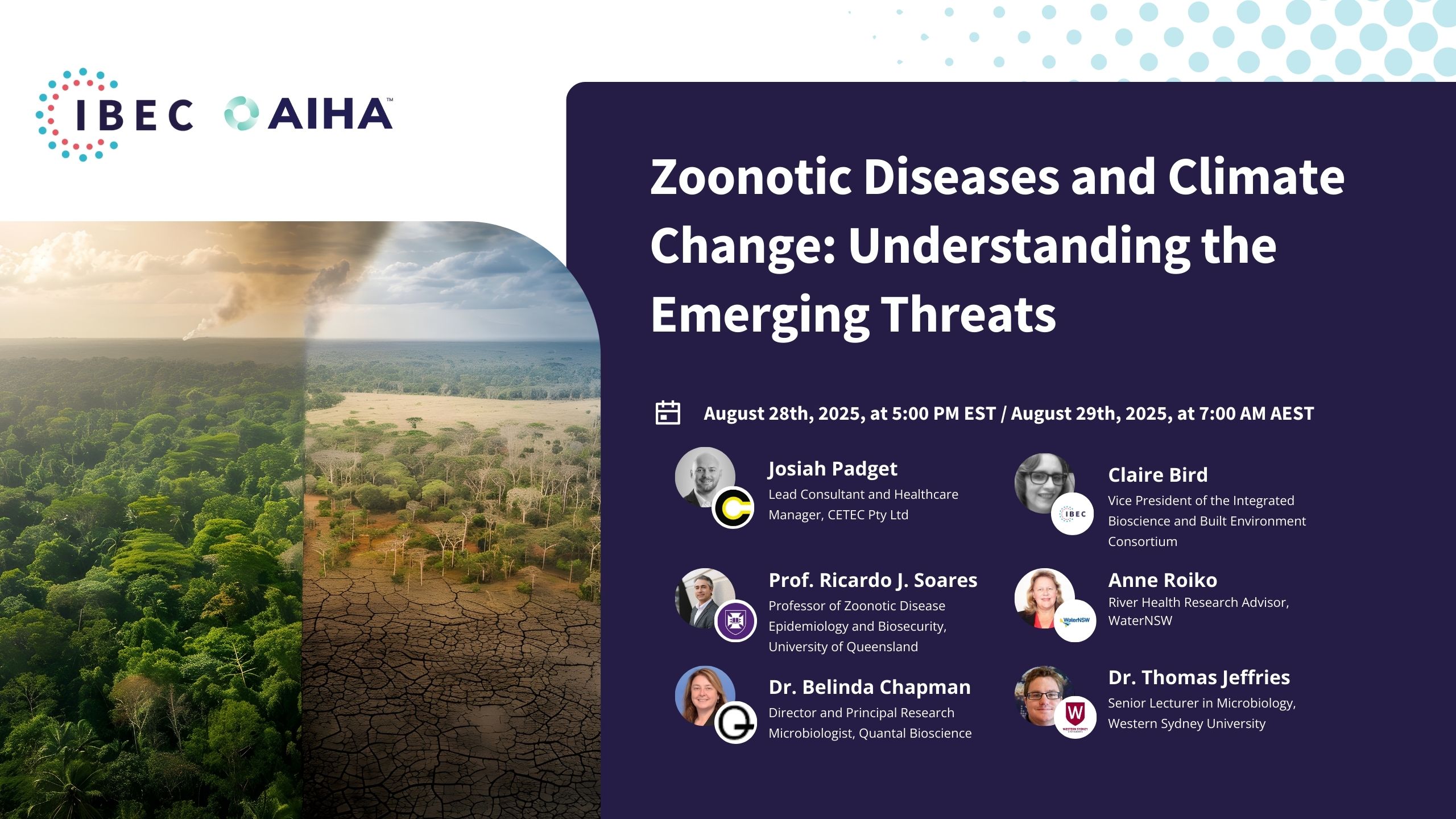Pioneering Steps to Control Infectious Aerosols: Dr. Claire Bird Offers Expert Insight on ASHRAE’s New Draft Standard

As we navigate through the challenges posed by the COVID-19 pandemic and other airborne diseases, there is a dire need to implement measures that will ensure the safety and health of individuals within indoor environments. One organization leading the charge on this front is ASHRAE, an esteemed body renowned for its HVAC&R standards and guidelines.
We’re excited to share that on May 15, ASHRAE unveiled the first draft of Standard 241P, a remarkable piece of work providing minimum requirements for HVAC-related measures aimed at reducing the risk of transmission of airborne viruses in homes, offices, schools, and hospitals during periods of high risk. This document is an incredible development and is slated to be finalized and published in July.
We are particularly proud and thrilled that Dr. Claire Bird, who is part of our Science Advisory Board, is featured in an in-depth article where she gives her expert analysis on the implications of this new standard, specifically for Australia.
Dr. Bird notes that the standard primarily focuses on tackling the long-range transmission of infectious aerosols. The guidelines provide a comprehensive approach to establishing thresholds for equivalent outdoor air exchange rates, thus improving indoor air quality and significantly mitigating infection risk during periods of high risk.
According to Dr. Bird, the release of this standard is an important step that will have a significant impact on the Australian market. We are heartened to see such global progress and look forward to the strides that will be made in improving indoor air quality, ultimately fostering healthier living and working environments.
We highly encourage you to delve into the full article and garner a deeper understanding of the intricacies of ASHRAE’s draft Standard 241P and the potential benefits it could bring to our indoor environments.
Read the full article here: https://www.hvacrnews.com.au/news/australian-views-on-us-pathogen-mitigation-standard/
As we continue to support efforts for safer and healthier indoor spaces, we invite you to join us in this exciting journey and be part of the conversation.
Stay tuned for more updates and insights from our team and members of our Science Advisory Board. Let’s continue to learn, adapt, and move forward together in these challenging times.
Related Blogposts
How Climate Change is Propelling the Spread of Infectious Disease
By Stephane Bilodeau, Eng., Ph.D., FEC, Chief Science Officer at IBECClimate change is not only an ecological crisis; it fundamentally alters public health dynamics worldwide…
IBEC Statement on the Quarantine of Cargo Ship in Argentina Due to Suspected Mpox Case
The recent news regarding the quarantine of a cargo ship near Argentina’s Rosario Port due to a suspected case of mpox underscores the continued global…
Interdisciplinary Collaboration in Environmental Science: Pioneering Health Solutions with IBEC’s New CSO
The Integrated Bioscience and Built Environment Consortium (IBEC) proudly introduces its new Chief Scientific Officer (CSO), Stephane Bilodeau. Bringing over 25 years of diverse experience…
Navigating the Rise of Bacterial Pneumonia: Insights and Precautions
Navigating the Rise of Bacterial Pneumonia: Insights and Precautions As winter’s chill sets in, health professionals and organizations brace for the annual uptick in respiratory…
New COVID-19 Variant JN.1 Raises in the United States
JN.1 is a highly contagious, fast-spreading subvariant of omicron that has become the dominant strain in the country. According to data from the Centers for…
IBEC Takes the Lead in Developing a Framework for Reducing Indoor Pathogen Transmission
Dear IBEC Partners and Supporters, As we continue to navigate the ongoing threat of airborne pathogens transmission in our shared indoor communities, it’s more important…
New Commit To C.A.R.E. Resources Deliver Innovative Indoor Air Quality Solutions for Safer Workplaces
The Commit to C.A.R.E initiative The Integrated Bioscience and Built Environment Consortium (IBEC) and The American Industrial Hygiene Association (AIHA), two leading organizations committed to…
Staying Ahead of Severe GAS Infections and Other Secondary Bacterial Infections
Severe Group A Streptococcal (GAS) infections, including invasive disease (iGAS), can lead to life-threatening illness and death. CDC is looking into an increase in…
Industry Leader L’Oréal Pledges to Support Commit to C.A.R.E.
Industry Leader L’Oréal Pledges to Support Commit to C.A.R.E. With health experts warning of the triple threat of the continued spread of new COVID-19…
C.L.E.A.N. Lessons Learned: How to protect the healthcare system from current and future pandemics
The COVID-19 pandemic caught the world off guard. Health organizations all over the globe rushed into a quick response to protect people from the threat…










